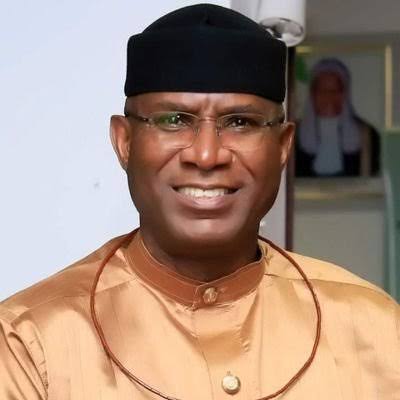Nigeria needs innovative solutions to stave off dangers of climate …C0NTINUE READING HERE >>>
Nigeria needs innovative solutions to stave off dangers of climate change, says Omo-Agege
Advertisement
Nigeria faces increasing risks from climate change, including desertification from the North, flooding and erosion in the south as well as changes in agricultural productivity, Deputy Senate President in the 9th session of the Senate, Senator Ovie Omo-Agege, has warned.
Noting that the challenges pose real threats to the nation, he said it requires concerted response from governments at all levels, leaders across political and corporate spheres and the civil society, to develop and implement robust strategies to mitigate the adverse impacts of climate change.
Senator Omo-Agege spoke in Abuja, Saturday, at the African Centre for Leadership, Strategy and Development bio-annual leadership lecture where he was the special guest of honour.
He said that in the quest to combat climate change, effective leadership is imperative. “There is no doubt that quality leadership is indispensable in every society because everything, as they say, rises and falls on leadership. No organisation or society can rise above the level of its leadership”, he said.
Recognising the challenges, he said the Federal Government articulated the National Policy on Climate Change in 2012 which was updated in 2021. And as Deputy President of the Senate, Omo-Agege said the policy which focuses on reducing greenhouse gas emissions, improving energy efficiency and enhancing community resilience was packaged and unfolded during his time in the Senate.
“As we now well know, the earth’s climate is undergoing unprecedented changes primarily due to human activities and the resultant increase in greenhouse gas emissions.
“From science, we know that the consequences are far-reaching – affecting our environment, economies, health and social fabric of societies in fundamental ways”, he said.
Encapsulated in the 2021 policy dubbed the National Determined Contributions (NDCs) the federal government policy set a target of reducing emissions by 20 percent by 2030 with a conditional target of 45 percent reduction contingent on international support, the former Deputy Senate President stated.
He said that under the NDCs policy, there are several other initiatives in the renewable energy master plan, including afforestation and reforestation programmes and others in agriculture.
Renewing and reinforcing the policy to meet the target is critical towards maintaining the balance needed to manage Nigeria’s growing population and ensuring that agricultural growth keeps pace with population increase.
The Climate Change Act, 2021 is the first stand-alone comprehensive climate change law in West Africa, he noted, adding that leaders across political and corporate spheres and the civil society, should develop and implement robust strategies to mitigate the adverse impacts of climate change.
“As we continue to confront the realities of climate change, let us remain committed to sustainable practices, innovative solutions, and inclusive policies. Let us lead by example, inspire others, and work collectively towards a resilient and sustainable future for all”, Omo-Agege said.
>
